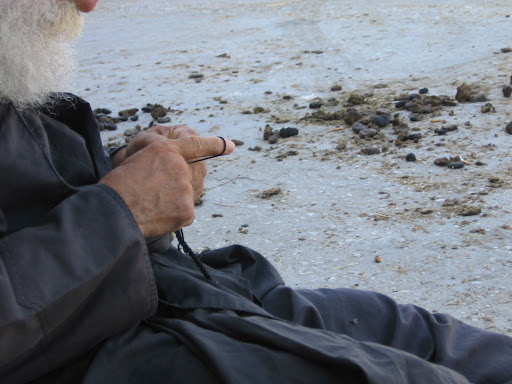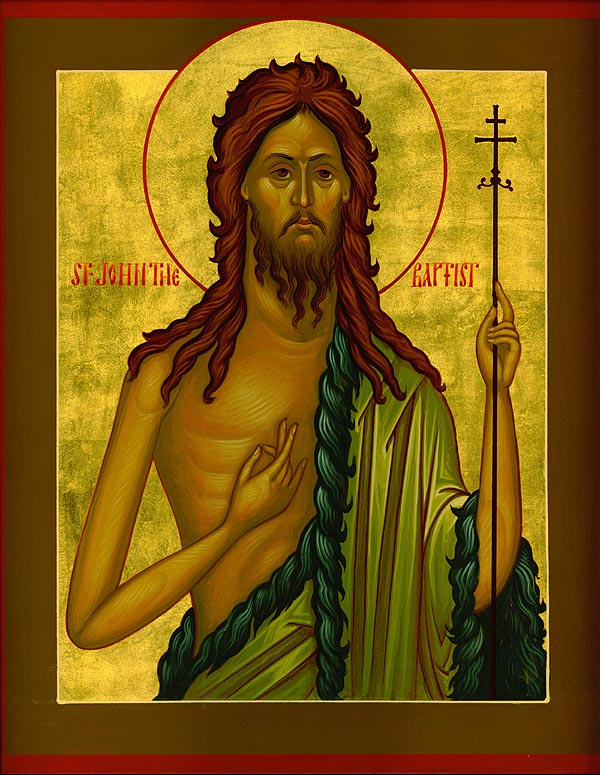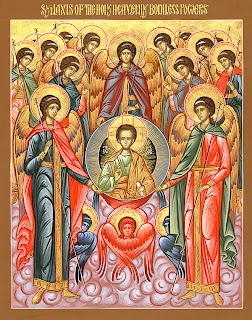Author: Rev. Enzo Bianchi, Prior of the Monastery of Bose |Source: L'Osservatore Romano via EWTN
 There are many different forms of prayer in the Christian tradition with which believers have wished to renew and confirm their communion with the Lord. However, there is no doubt that all Christian prayer has a centre represented by the liturgy, the summit of all the activity of the Church and the source of all her power (cf. Sacrosanctum Concilium, n. 10) and in which "the Church of Christ is built" (Thomas Aquinas, Summa Theologica III, q. 64, a. 2). For this reason, Christians know that the prayer of the Church, constituted by the Eucharistic liturgy and the Liturgy of the Hours, shapes their life as believers and provides them with the daily nourishment of the Word and of the Eucharist (cf. Novo Millennio ineunte, n. 34). As John Paul II recalls, this requires that "listening to the Word of God ... become a life-giving encounter, in the ancient and ever valid tradition of lectio divina, which draws from the biblical text the living Word which questions, directs and shapes our lives" (ibid., n. 39).
There are many different forms of prayer in the Christian tradition with which believers have wished to renew and confirm their communion with the Lord. However, there is no doubt that all Christian prayer has a centre represented by the liturgy, the summit of all the activity of the Church and the source of all her power (cf. Sacrosanctum Concilium, n. 10) and in which "the Church of Christ is built" (Thomas Aquinas, Summa Theologica III, q. 64, a. 2). For this reason, Christians know that the prayer of the Church, constituted by the Eucharistic liturgy and the Liturgy of the Hours, shapes their life as believers and provides them with the daily nourishment of the Word and of the Eucharist (cf. Novo Millennio ineunte, n. 34). As John Paul II recalls, this requires that "listening to the Word of God ... become a life-giving encounter, in the ancient and ever valid tradition of lectio divina, which draws from the biblical text the living Word which questions, directs and shapes our lives" (ibid., n. 39).
Rosary, support of the liturgy, school of personal prayer
After respecting this primacy, Christians—so that liturgical prayer may be prolonged so as to become unceasing prayer, developing and refining the art of conversation with God—can turn to other forms of prayer. Among these, in the Western tradition of the second millennium, the Rosary is the chief form. Many saints indeed prayed the Rosary and found it an effective means of renewing their way of close union with the Lord. However, John Paul II precisely reminds us, as did Paul VI, that the Rosary is a support for the liturgy, it is ordered to it and by it; can never replace the liturgy, since it really wishes to be a pedagogy of personal prayer (cf. Rosarium Virginis Mariae, n. 4).
How has the Rosary developed in the Christian spiritual tradition over the centuries? The Book of Psalms closes with the verse: "Let everything that breathes, praise the Lord" (Ps 150,6). Rabbis like to interpret this as an invitation to glorify the Lord in many different ways: let every breath of living beings express praise to the Lord! In his teaching on prayer given by Jesus to his disciples there resounds the exhortation to "watch at all times, praying..." (Lk 21,36), "always to pray and not lose heart" (Lk 18,1) and the Apostle Paul also recommends this need to the Christians of the communities he founded (cf. I Thes 5,17; Eph 6,18). Certainly, these exhortations do not require an external attitude of prayer, which would be impossible, but to keep an attitude of heart, ready to listen to the Lord and ready to speak to him.
Continuous prayer of the monks
 For this very reason, the fathers of monasticism applied themselves to the memoria Dei, remembrance of God tending to a permanent attitude of prayer that would enable them to renew constantly their communion with God. St Basil in particular, insisted strongly on this form of prayer: "We must persevere in the holy thought of God through ceaseless, pure remembrance of him, impressed upon our souls as an indelible seal" (Long Rule 5,2). He also said: "We must cling constantly to the memory of God, as children to their mother" (ibid., 2,2). Within monastic life an ascetical journey was gradually elaborated in order to attain continuous prayer: the observance of the commandments, spiritual combat, the custody of the heart and vigilance lead the monk to such attendance upon God that he himself becomes a living, continuous prayer. And to pursue this path effectively, the Desert Fathers—in an age when books and codices were rare and people who could read equally scarce—would start by practising melete, meditation or rumination of a verse of Holy Scripture which they had learned by heart, or the repetition of an invocation to the Lord. Indeed, this was a simple form of prayer, perhaps even "rudimentary", but such as could be prayed in the variety of activities and moments of the day: during manual labour, on a journey, at quiet times of rest.... These invocations asked for help, implored mercy, or were shouts of praise and thanksgiving to the Lord. Above all, they practiced the invocation of the Holy Name of Jesus, the Name that God, through the Angel, gave to the Child who was to be born of the Virgin Mary: "Ieshoua", "IHWH is salvation"! This beautiful Name invoked by Christians (cf. Jas 5,14), this Name above every other name (Phil 2,9), the only Name in which there is salvation (cf. Acts 4112) has become for Christians what the Name of the Lord, IHWH, was for the Jews.
For this very reason, the fathers of monasticism applied themselves to the memoria Dei, remembrance of God tending to a permanent attitude of prayer that would enable them to renew constantly their communion with God. St Basil in particular, insisted strongly on this form of prayer: "We must persevere in the holy thought of God through ceaseless, pure remembrance of him, impressed upon our souls as an indelible seal" (Long Rule 5,2). He also said: "We must cling constantly to the memory of God, as children to their mother" (ibid., 2,2). Within monastic life an ascetical journey was gradually elaborated in order to attain continuous prayer: the observance of the commandments, spiritual combat, the custody of the heart and vigilance lead the monk to such attendance upon God that he himself becomes a living, continuous prayer. And to pursue this path effectively, the Desert Fathers—in an age when books and codices were rare and people who could read equally scarce—would start by practising melete, meditation or rumination of a verse of Holy Scripture which they had learned by heart, or the repetition of an invocation to the Lord. Indeed, this was a simple form of prayer, perhaps even "rudimentary", but such as could be prayed in the variety of activities and moments of the day: during manual labour, on a journey, at quiet times of rest.... These invocations asked for help, implored mercy, or were shouts of praise and thanksgiving to the Lord. Above all, they practiced the invocation of the Holy Name of Jesus, the Name that God, through the Angel, gave to the Child who was to be born of the Virgin Mary: "Ieshoua", "IHWH is salvation"! This beautiful Name invoked by Christians (cf. Jas 5,14), this Name above every other name (Phil 2,9), the only Name in which there is salvation (cf. Acts 4112) has become for Christians what the Name of the Lord, IHWH, was for the Jews.
Use of the name of Jesus as personal prayer
From the fifth century, in monastic circles in the East, the invocation of the name of Jesus was highlighted as a personal prayer in the conviction that through the saving Name it would be possible to overcome temptation and unify the whole being in the strong tension of communion with God. Invocation and meditation were combined and alternated, harmonizing the lips and the mind, so that the person succeeded in experiencing the Lord's presence in the depths of his heart: "Christ in us, the hope of glory" (Col 1,27). This is the "monologhistic" (monologhistos) prayer which was to be practised by generations of Eastern monks and which gradually developed almost exclusively into the invocation "Lord Jesus Christ, Son of God, have mercy upon me!", excluding other forms of supplication or meditation. When a novice makes his monastic vows he is given a Rosary, known as "the spiritual sword", and he learns to pray the Jesus Prayer night and day. This was to be the characteristic prayer of hesychasm (a spiritual trend that developed at Mount Athos in the 13th century), in which the elements of a psychosomatic technique with the intention of involving the body in prayer were combined with the invocation of the name of Jesus. So this was the practice of the Christian East: the repetition of an invocation to Jesus, a short prayer with a biblical content and a deep theological and spiritual meaning for those who practise it. Indeed, it instills in the heart of the person praying a sentiment of humility and an experience of Jesus' merciful presence, making possible the unification of the whole person in contact with the Lord, which is a humanly possible form of "continuous prayer".
Jewish tradition of the veneration of the Holy Name of God
In the Hassidean Jewish tradition, veneration of the Holy Name of God has also used a method of repetition. When someone, through pure grace, succeeded in formulating it, this person—called baal Shem, "lord, possessor of the Name"—invoked it repeatedly, becoming a contemplative and an intercessor.
Non-Christian, Eastern methods of prayer
Nor should we forget that the method of repetitive and meditative prayer is not unknown in other religious approaches: in them can be found similarities with the Jesus Prayer and with the Rosary itself, but they should be understood as a means, as human instruments, in the search for closeness with God. However, a fundamental difference remains: whereas in the prayer techniques of the non-Christian East, the primacy belongs to the method that aims at creating a condition for contemplation, in Christian prayer the primacy belongs to the action of the Holy Spirit, "it is the Spirit who prays in us" (cf. Rom 8,15.26; Gal 4,6), without whom there is no genuine Christian prayer.
For example, in the quest for God of the peoples of India, there is practiced a form of prayer which consists in repeating many times throughout the day, with the help of a string of beads, a very brief invocation to the divinity, a mystical formula (mantra), sometimes associated with psychosomatic techniques (ajapamantra). This is a prayer to achieve inner peace and to reach a penetrating vision of reality, a prayer which has also been attested in Chinese (10th century) and Japanese (12th century) Buddhism as an invocation to Buddha Amida, and widely practised in our day in Tibetan Buddhism: lamas always wear the Buddhist rosary (mala) on their left wrist.
Islamic forms of prayer
 A form of prayer present in the spiritual tradition of Islam should also be mentioned: the dhikr, in which, precisely with a view to unceasing remembrance of God, his Name is repeatedly spoken and an effort is made to forget everything that is not God. This practice emerged in Sufism in a relatively late period, the 11th-12th century, and it is well described in a text by al-Ghazali: "Having sat down in solitude, the Sufi will not cease to say with his mouth: Allah, Allah, continually, with the presence of his heart". Thus it is a way of remembering God, triggered by the recitation of the Name of God (Allah) or his ninety-nine names, as many as the beads of the Muslim rosary (sebhaa): this practice is both individual and collective (at least in Sufi confraternities) with a view to communication with God. It also sometimes makes use of psychosomatic techniques, which, however, remain purely a vehicle because, as al-Ghazali teaches, "it is not within the power of the Sufi recollected in dhikra to attract to himself the mercy of God, the Most High".
A form of prayer present in the spiritual tradition of Islam should also be mentioned: the dhikr, in which, precisely with a view to unceasing remembrance of God, his Name is repeatedly spoken and an effort is made to forget everything that is not God. This practice emerged in Sufism in a relatively late period, the 11th-12th century, and it is well described in a text by al-Ghazali: "Having sat down in solitude, the Sufi will not cease to say with his mouth: Allah, Allah, continually, with the presence of his heart". Thus it is a way of remembering God, triggered by the recitation of the Name of God (Allah) or his ninety-nine names, as many as the beads of the Muslim rosary (sebhaa): this practice is both individual and collective (at least in Sufi confraternities) with a view to communication with God. It also sometimes makes use of psychosomatic techniques, which, however, remain purely a vehicle because, as al-Ghazali teaches, "it is not within the power of the Sufi recollected in dhikra to attract to himself the mercy of God, the Most High".
Influence of Christian East on West
If it is useful to compare the Rosary with these forms of repetitive prayer which exist in other religions, the most significant similarity remains that of the "prayer of the heart" of the Orthodox East, mentioned above. The two "practices" have undoubtedly influenced each other in the past. Thus in the second millennium, the use of "aspirations" (invocations to God, vibrant as a javelin dart, iaculum) and of litanies, repetitions of names and attributes of the Lord or of the saints, with requests for their intercession: among these we find the systematic repetition of the angel's greeting to Mary.
Greeting to Mary, Jesus, petitions
Now, if we take a closer look at the Rosary, this Western "prayer of the heart", we see that it is divided into a twofold movement: the first part in which the praise and joy of the Incarnation are lived in the repetition of the Angel's greeting to Mary and which culminates in enunciating the Holy Name of Jesus, followed by the invocation of the second part. The two essential "themes" of Christian prayer—praise and salvation—are therefore present, and at the centre is the Name of Jesus, the one name in which there is salvation, the Name of the "precious Christian memory". Nor should it be forgotten that the Hail Mary is in itself an ecumenical prayer, since the theology of the Reformation never condemned calling on Mary to pray and intercede for us.
Biblical roots of Hail Mary
The evident biblical matrix of the Hail Mary, which is repeated in the first part, are the Angel's words ("Hail, full of grace, the Lord is with you": Lk 1,28), and Elizabeth's words of rejoicing ("blessed are you among women, and blessed is the fruit of your womb": Lk 1,42) which are reminiscent of the promises/blessings of the God of the Covenant (cf. Dt 28,4). So at the origin of the Hail Mary there is simply the twofold biblical greeting to Mary which is expressed in the invocation of the Name of Jesus, namely, in a "prayer to Jesus". The faith of the Church then felt the need for the invocation "pray for us", pray for us "now", for us poor "sinners", and pray for us at the eschatalogical "hour", the hour "of our death", of our exodus from this world to the Father.
Universal appeal of Rosary
Our experience says that the Rosary is a prayer that is "precious" also by virtue of that simplicity, that "poverty" which has been mentioned: to nourish our spiritual life, it is not always possible to use a prayer that is nourished by the reading of Scripture, whereas it is easy everywhere and in every situation to recite the Rosary, even if only part of it, one "decade" or one "mystery"… It is a prayer that brings peace and predisposes us to the inner unification of our whole being—body, mind and spirit—through the joyful praise of the Mother and of the Holy Name of Jesus, and by the invocation of a prayer of intercession.
With the Rosary, therefore—in the communion of all the saints, who always intercede for us—we pray to the Mother of the Lord and ask her to pray for us: "ora pro nobis", pray for us, for us all. And through this formula it is possible to meditate on the great mystery of salvation brought about in Jesus Christ, from the Incarnation to the merciful and glorious coming. In this way in the Rosary meditation, prayer and contemplation are interwoven around the Holy Name of Jesus: "it is at heart a Christocentric prayer" John Paul II wrote (Rosarium Virginis Mariae, n. 1), and this is precisely why it can be a prayer of ordinary people and of intellectuals, of the elderly and of children, a prayer of all who have a longing for continuous prayer and know that they are poor sinners.
 Brethren: Peace and Good to you in Jesus’ Name.
Brethren: Peace and Good to you in Jesus’ Name.


 Recently I had another dream. I dreamt that I saw a young girl standing at night on an open field with tall grasses. The girl looked Native American, dark skin, long black hair. She wore a seamless dress, of a light earth color, although the image shifted and she appeared naked, though I could only see her back and as my field of vision moved to her front, her torso. The night was filled with stars and a soft, warm breeze blew upon the prairie. I too felt its warmth. Her hair moved ever so slightly in response to the warm breeze.
Recently I had another dream. I dreamt that I saw a young girl standing at night on an open field with tall grasses. The girl looked Native American, dark skin, long black hair. She wore a seamless dress, of a light earth color, although the image shifted and she appeared naked, though I could only see her back and as my field of vision moved to her front, her torso. The night was filled with stars and a soft, warm breeze blew upon the prairie. I too felt its warmth. Her hair moved ever so slightly in response to the warm breeze.



 There are many different forms of prayer in the Christian tradition with which believers have wished to renew and confirm their communion with the Lord. However, there is no doubt that all Christian prayer has a centre represented by the liturgy, the summit of all the activity of the Church and the source of all her power (cf. Sacrosanctum Concilium, n. 10) and in which "the Church of Christ is built" (Thomas Aquinas, Summa Theologica III, q. 64, a. 2). For this reason, Christians know that the prayer of the Church, constituted by the Eucharistic liturgy and the Liturgy of the Hours, shapes their life as believers and provides them with the daily nourishment of the Word and of the Eucharist (cf. Novo Millennio ineunte, n. 34). As John Paul II recalls, this requires that "listening to the Word of God ... become a life-giving encounter, in the ancient and ever valid tradition of lectio divina, which draws from the biblical text the living Word which questions, directs and shapes our lives" (ibid., n. 39).
There are many different forms of prayer in the Christian tradition with which believers have wished to renew and confirm their communion with the Lord. However, there is no doubt that all Christian prayer has a centre represented by the liturgy, the summit of all the activity of the Church and the source of all her power (cf. Sacrosanctum Concilium, n. 10) and in which "the Church of Christ is built" (Thomas Aquinas, Summa Theologica III, q. 64, a. 2). For this reason, Christians know that the prayer of the Church, constituted by the Eucharistic liturgy and the Liturgy of the Hours, shapes their life as believers and provides them with the daily nourishment of the Word and of the Eucharist (cf. Novo Millennio ineunte, n. 34). As John Paul II recalls, this requires that "listening to the Word of God ... become a life-giving encounter, in the ancient and ever valid tradition of lectio divina, which draws from the biblical text the living Word which questions, directs and shapes our lives" (ibid., n. 39). For this very reason, the fathers of monasticism applied themselves to the memoria Dei, remembrance of God tending to a permanent attitude of prayer that would enable them to renew constantly their communion with God. St Basil in particular, insisted strongly on this form of prayer: "We must persevere in the holy thought of God through ceaseless, pure remembrance of him, impressed upon our souls as an indelible seal" (Long Rule 5,2). He also said: "We must cling constantly to the memory of God, as children to their mother" (ibid., 2,2). Within monastic life an ascetical journey was gradually elaborated in order to attain continuous prayer: the observance of the commandments, spiritual combat, the custody of the heart and vigilance lead the monk to such attendance upon God that he himself becomes a living, continuous prayer. And to pursue this path effectively, the Desert Fathers—in an age when books and codices were rare and people who could read equally scarce—would start by practising melete, meditation or rumination of a verse of Holy Scripture which they had learned by heart, or the repetition of an invocation to the Lord. Indeed, this was a simple form of prayer, perhaps even "rudimentary", but such as could be prayed in the variety of activities and moments of the day: during manual labour, on a journey, at quiet times of rest.... These invocations asked for help, implored mercy, or were shouts of praise and thanksgiving to the Lord. Above all, they practiced the invocation of the Holy Name of Jesus, the Name that God, through the Angel, gave to the Child who was to be born of the Virgin Mary: "Ieshoua", "IHWH is salvation"! This beautiful Name invoked by Christians (cf. Jas 5,14), this Name above every other name (Phil 2,9), the only Name in which there is salvation (cf. Acts 4112) has become for Christians what the Name of the Lord, IHWH, was for the Jews.
For this very reason, the fathers of monasticism applied themselves to the memoria Dei, remembrance of God tending to a permanent attitude of prayer that would enable them to renew constantly their communion with God. St Basil in particular, insisted strongly on this form of prayer: "We must persevere in the holy thought of God through ceaseless, pure remembrance of him, impressed upon our souls as an indelible seal" (Long Rule 5,2). He also said: "We must cling constantly to the memory of God, as children to their mother" (ibid., 2,2). Within monastic life an ascetical journey was gradually elaborated in order to attain continuous prayer: the observance of the commandments, spiritual combat, the custody of the heart and vigilance lead the monk to such attendance upon God that he himself becomes a living, continuous prayer. And to pursue this path effectively, the Desert Fathers—in an age when books and codices were rare and people who could read equally scarce—would start by practising melete, meditation or rumination of a verse of Holy Scripture which they had learned by heart, or the repetition of an invocation to the Lord. Indeed, this was a simple form of prayer, perhaps even "rudimentary", but such as could be prayed in the variety of activities and moments of the day: during manual labour, on a journey, at quiet times of rest.... These invocations asked for help, implored mercy, or were shouts of praise and thanksgiving to the Lord. Above all, they practiced the invocation of the Holy Name of Jesus, the Name that God, through the Angel, gave to the Child who was to be born of the Virgin Mary: "Ieshoua", "IHWH is salvation"! This beautiful Name invoked by Christians (cf. Jas 5,14), this Name above every other name (Phil 2,9), the only Name in which there is salvation (cf. Acts 4112) has become for Christians what the Name of the Lord, IHWH, was for the Jews. A form of prayer present in the spiritual tradition of Islam should also be mentioned: the dhikr, in which, precisely with a view to unceasing remembrance of God, his Name is repeatedly spoken and an effort is made to forget everything that is not God. This practice emerged in Sufism in a relatively late period, the 11th-12th century, and it is well described in a text by al-Ghazali: "Having sat down in solitude, the Sufi will not cease to say with his mouth: Allah, Allah, continually, with the presence of his heart". Thus it is a way of remembering God, triggered by the recitation of the Name of God (Allah) or his ninety-nine names, as many as the beads of the Muslim rosary (sebhaa): this practice is both individual and collective (at least in Sufi confraternities) with a view to communication with God. It also sometimes makes use of psychosomatic techniques, which, however, remain purely a vehicle because, as al-Ghazali teaches, "it is not within the power of the Sufi recollected in dhikra to attract to himself the mercy of God, the Most High".
A form of prayer present in the spiritual tradition of Islam should also be mentioned: the dhikr, in which, precisely with a view to unceasing remembrance of God, his Name is repeatedly spoken and an effort is made to forget everything that is not God. This practice emerged in Sufism in a relatively late period, the 11th-12th century, and it is well described in a text by al-Ghazali: "Having sat down in solitude, the Sufi will not cease to say with his mouth: Allah, Allah, continually, with the presence of his heart". Thus it is a way of remembering God, triggered by the recitation of the Name of God (Allah) or his ninety-nine names, as many as the beads of the Muslim rosary (sebhaa): this practice is both individual and collective (at least in Sufi confraternities) with a view to communication with God. It also sometimes makes use of psychosomatic techniques, which, however, remain purely a vehicle because, as al-Ghazali teaches, "it is not within the power of the Sufi recollected in dhikra to attract to himself the mercy of God, the Most High". If a small group of psychiatrists and other mental health professionals, among them an expert who for years worked as a consultant to the American bishops in the cases of priests abusing minors, is successful in promoting its thesis during a conference in Baltimore this week, pedophiles may play a role in having pedophilia erased from the list of mental disorders currently listed in the “Sacred Book” of the American Psychiatric Association, that is from the Diagnostic and Statistic Manual of Mental Disorders, which will be subject to an important revision in 2013. Critics of this operation are concerned and say that this could lead to a de-criminalization of pedophilia.
If a small group of psychiatrists and other mental health professionals, among them an expert who for years worked as a consultant to the American bishops in the cases of priests abusing minors, is successful in promoting its thesis during a conference in Baltimore this week, pedophiles may play a role in having pedophilia erased from the list of mental disorders currently listed in the “Sacred Book” of the American Psychiatric Association, that is from the Diagnostic and Statistic Manual of Mental Disorders, which will be subject to an important revision in 2013. Critics of this operation are concerned and say that this could lead to a de-criminalization of pedophilia. 



 35. What do we mean when we say that God is the Creator of heaven and earth?
35. What do we mean when we say that God is the Creator of heaven and earth? 43. How do our guardian angels help us?
43. How do our guardian angels help us?
